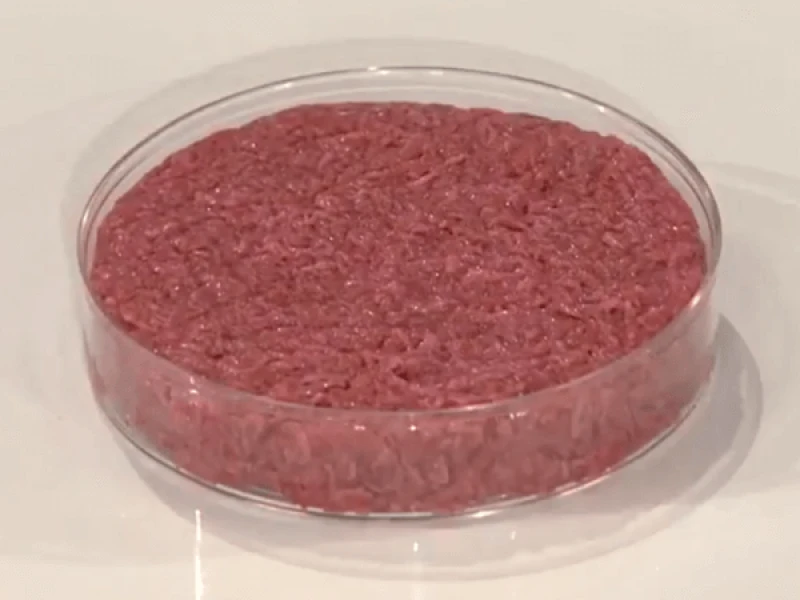Dissecting claims that lab-grown meat can meaningfully help address climate change
Dissecting claims that lab-grown meat can meaningfully help address climate change


One of the major drivers for businesses focusing on cultivated (or lab-grown, or cultured) meat is its potential for cleaning up the climate impact of our current food system. Greenhouse-gas emissions from the animals we eat (mostly cows) account for nearly 15% of the global total, a fraction that’s expected to increase in the coming decades.
But whether cultivated meat is better for the environment is still not entirely clear.
In a recent preprint study that hasn’t yet been peer-reviewed, [researcher Edward] Spang estimated the total global-warming potential of cultivated meat in several scenarios based on assumptions about the current state of the industry.
…
The study’s results do differ from those of many previous analyses in the field, which generally found that cultivated meat would reduce emissions compared with conventional beef production. Most of those studies assume that producers of cultivated meat will be able to avoid the energy-intensive methods described in the preprint, and will instead scale up to large commercial facilities and progress toward using more widely available, food-grade ingredients.
Experience will provide a better picture of the industry’s potential climate impact, says Pelle Sinke, a researcher at CE Delft, an independent research firm and consultancy focusing on energy and the environment. “In all innovative technologies, there’s an enormous learning curve,” Sinke says.
This is an excerpt. Read the original post here

 | Videos | More... |

Video: Nuclear energy will destroy us? Global warming is an existential threat? Chemicals are massacring bees? Donate to the Green Industrial Complex!
 | Bees & Pollinators | More... |

GLP podcast: Science journalism is a mess. Here’s how to fix it

Mosquito massacre: Can we safely tackle malaria with a CRISPR gene drive?

Are we facing an ‘Insect Apocalypse’ caused by ‘intensive, industrial’ farming and agricultural chemicals? The media say yes; Science says ‘no’
 | Infographics | More... |

Infographic: Global regulatory and health research agencies on whether glyphosate causes cancer
 | GMO FAQs | More... |

Why is there controversy over GMO foods but not GMO drugs?

How are GMOs labeled around the world?

How does genetic engineering differ from conventional breeding?
 | GLP Profiles | More... |

Alex Jones: Right-wing conspiracy theorist stokes fear of GMOs, pesticides to sell ‘health supplements’




 Viewpoint — Fact checking MAHA mythmakers: How wellness influencers and RFK, Jr. undermine American science and health
Viewpoint — Fact checking MAHA mythmakers: How wellness influencers and RFK, Jr. undermine American science and health Viewpoint: Video — Big Solar is gobbling up productive agricultural land and hurting farmers yet providing little energy or sustainabilty gains
Viewpoint: Video — Big Solar is gobbling up productive agricultural land and hurting farmers yet providing little energy or sustainabilty gains Fighting deforestation with CO2: Biotechnology breakthrough creates sustainable palm oil alternative for cosmetics
Fighting deforestation with CO2: Biotechnology breakthrough creates sustainable palm oil alternative for cosmetics Trust issues: What happens when therapists use ChatGPT?
Trust issues: What happens when therapists use ChatGPT? California, Washington, Oregon forge immunization alliance to safeguard vaccine access against federal undermining
California, Washington, Oregon forge immunization alliance to safeguard vaccine access against federal undermining 30-year-old tomato line shows genetic resistance to devastating virus
30-year-old tomato line shows genetic resistance to devastating virus The free-range chicken dilemma: Better for birds, but with substantial costs
The free-range chicken dilemma: Better for birds, but with substantial costs ‘You have to treat the brain first’: Rethinking chronic pain with Sanjay Gupta
‘You have to treat the brain first’: Rethinking chronic pain with Sanjay Gupta
